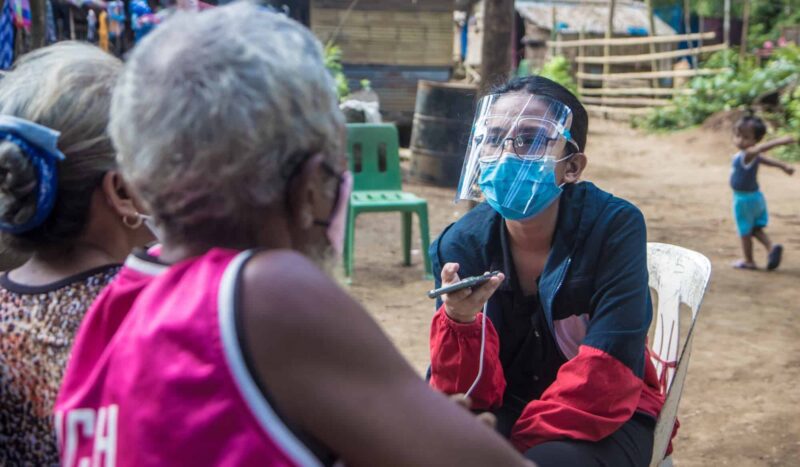In the midst of the pandemic, interest in Internews’ Earth Journalism Network’s first collaborative climate change reporting course in the Philippines has never been hotter. Fifteen journalists and environmental communicators benefited from this reporting course on multimedia stories, learning and exchanging views with environmental and climate change experts, brought together by EJN in partnership with the Asian Center for Journalism (ACFJ) at the Ateneo De Manila University.
For journalists in the Philippines, coverage of climate change and other environment-related issues means saving lives, influencing policy change and empowering people to make informed choices even in the time of COVID-19.
Started in March 2021, the course will come to a close this September. It is led by ACFJ executive director Luz Rimban with support from EJN’s Philippines Coordinator Imelda Abaño. The fellowship covers climate change basics, projections and scenarios, issues especially pertinent in the Philippines, as well as an examination of how climate stories are being written.
“Bringing journalists and communicators from environmental groups together through this fellowship gives them more bandwidth, access to resources and lets them share information and reporting. Teaming them up is one of the most effective ways to dig into climate change and its intersections with other issues such as corruption, governance and health,” said Abaño.
“I applied for this course because I saw this as an opportunity to widen the scope of our stories, since climate change and the climate crisis cut across other issues—human rights, the environment, politics, among others—that we also deal with,” said Mariejo Ramos, reporter at the Philippine Daily Inquirer.
Ramos and her team are working on a two-part story about how the off-grid and energy-poor indigenous communities in Tanay, Rizal use renewable energy and collective action to protect their mountainside community against social and environmental injustices. In their story, they will try to show the resilience of the communities in the face of several geographical and socio-economic vulnerabilities, especially to the climate crisis. The story will report on the resistance to massive development projects, like the P12.2-billion Kaliwa Dam that could displace their tribes and inundate their lands.
“I will definitely recommend this kind of opportunity to my peers because journalism courses like this are not readily available to most newsrooms. As the climate crisis continues to unfold, courses like this could help journalists catch up on crucial information and to localize this knowledge for better rights-oriented and scientific- or evidence-based stories,” Ramos said.
The effects of climate change are indeed being felt across the country, but the issue is often under-reported, with many newsrooms lacking the necessary resources or reporters to cover it. After learning about the field of environmental reporting, Gaea Cabico, a multimedia reporter from Philstar.com knew she wanted to be one of the journalists bringing awareness in the Philippines.
“I find the reporting fellowship very interesting because it helps bridge the gap between journalists and non-government groups. This is a great opportunity for us to work together and communicate the climate crisis effectively. I enjoyed learning more about the science behind climate change as well as the ways to get our message across,” Cabico said.
Cabico is working on a two-part story with the Kalikasan People’s Network for the Environment looking at the degradation of the Upper Marikina River Basin Protected Landscape and its impacts on downstream communities.
Patricia Aquino, chief content officer of Pumapodcast, said she wanted to deepen her knowledge of the climate crisis in order to write better audio stories to serve and inform listeners.
“EJN and ACFJ-Ateneo are both respected institutions in the field and I trusted that I would be properly educated under their program. They were able to provide editorial guidance so our stories can be the best they can be,” she said.
Aquino and her team are producing a three-part podcast series to inform the public about the main drivers of climate change such as transportation, the energy sector and the healthcare industry. “We know that many local journalists need the editorial and financial support to be able to produce good stories, and we hoped that they would see this fellowship as an opportunity to avail of that,” said ACFJ’s Rimban.
